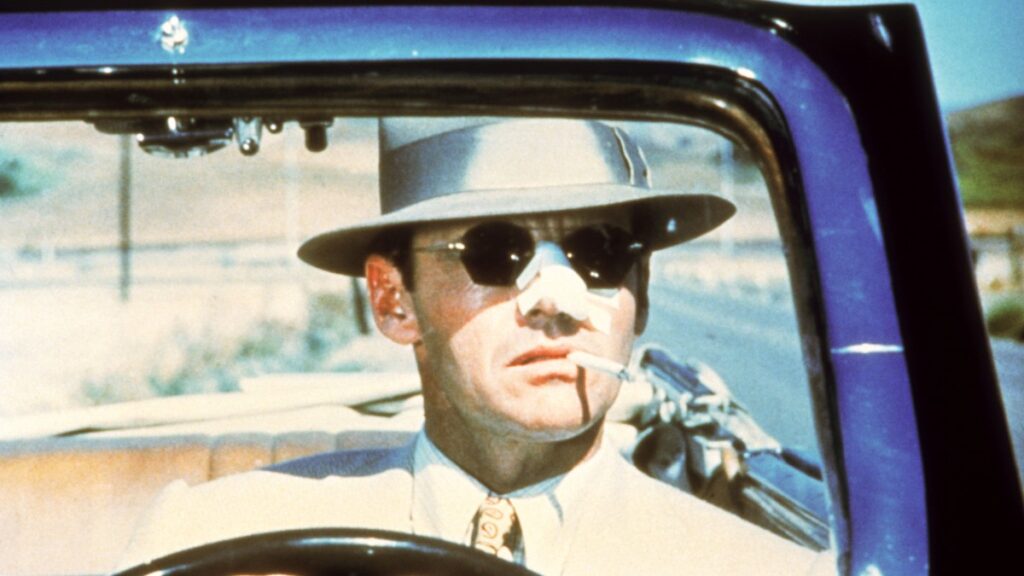
Image via Paramount Pictures
Released in 1974 and starring Jack Nicholson, Chinatown is considered a classic. Written by Robert Towne and director Roman Polanski, this is an old-fashioned gumshoe melodrama that studios have stopped making. Featuring Faye Dunaway and cinematic legend John Huston, Chinatown was made during a time of creative upheaval in Hollywood. On the surface it may be about water shortages in California, but concealed beneath all that government red tape is an incestuous story rooted in family trauma. Produced by Robert Evans, who would go on to usher Marathon Man and Urban Cowboy into existence, Chinatown feels like it stepped right out of Hollywood’s golden age.
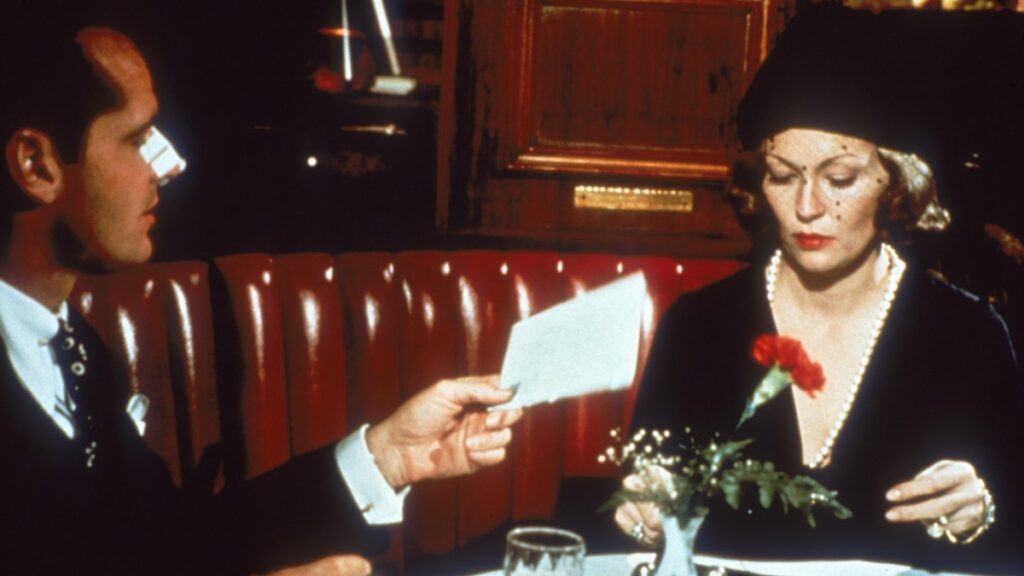
Image via Paramount Pictures
Remastered and re-released on 4K for its 50th anniversary, this film noir has lost nothing in translation. A young Jack Nicholson deploys all the charisma at his disposal, ensuring that J J Gittes keeps his audience on side even when things get rough. Faye Dunaway loses none of her mystique as Evelyn Mulwray, walking a thin line between paying client and stereotypical femme fatale. With an ensemble including John Huston as Noah Cross, Chinatown is still the gold standard for film noir. Nicholson would go on to make One Flew Over the Cuckoo’s Nest and The Shining in years to come, but his on-screen persona was established here.
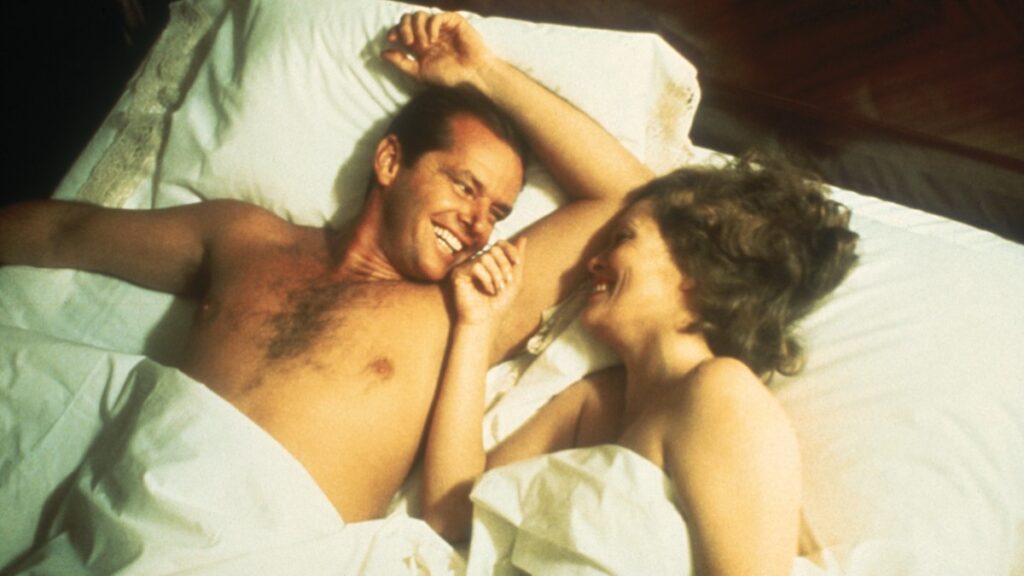
Image via Paramount Pictures
Chinatown has none of the urgency contained within contemporary movies, preferring instead to unpack its story carefully. Relationships feel familiar, this world is grounded, and thanks to Robert Towne there are devils is in the detail. Trapped in a time capsule filled with murder and intrigue, it has one of the most downbeat endings imaginable. Balking traditions and bucking conventions, Chinatown embraces realities that cinema normally refuses to face.
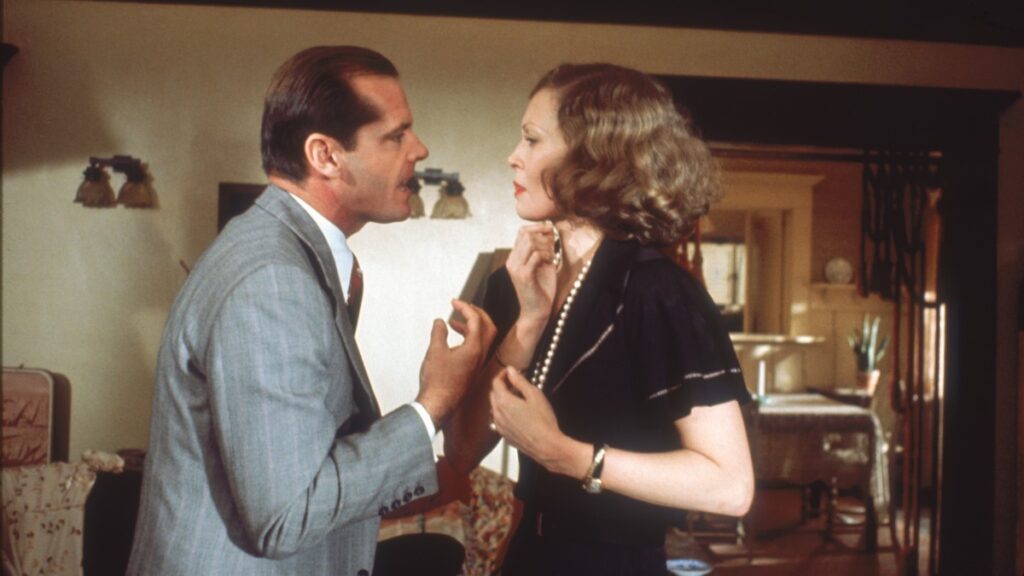
Image via Paramount Pictures
Hollywood has been nicknamed the dream factory by countless generations, promising salvation from a life less ordinary. Somewhere happy endings are guaranteed, heroes are commonplace, and real problems just disappear. However, during this period there were artists coming up determined to change things. Examples including Midnight Cowboy with Jon Voight and Dustin Hoffman scrapped at the facade to reveal something braver beneath. Audiences embraced this new aesthetic, and directors took full advantage of their freedom. Alongside Urban Cowboy with John Travolta, The Conversation by Francis Ford Coppola, and Rod Steiger in The Pawnbroker – cinematic landscapes were changing.
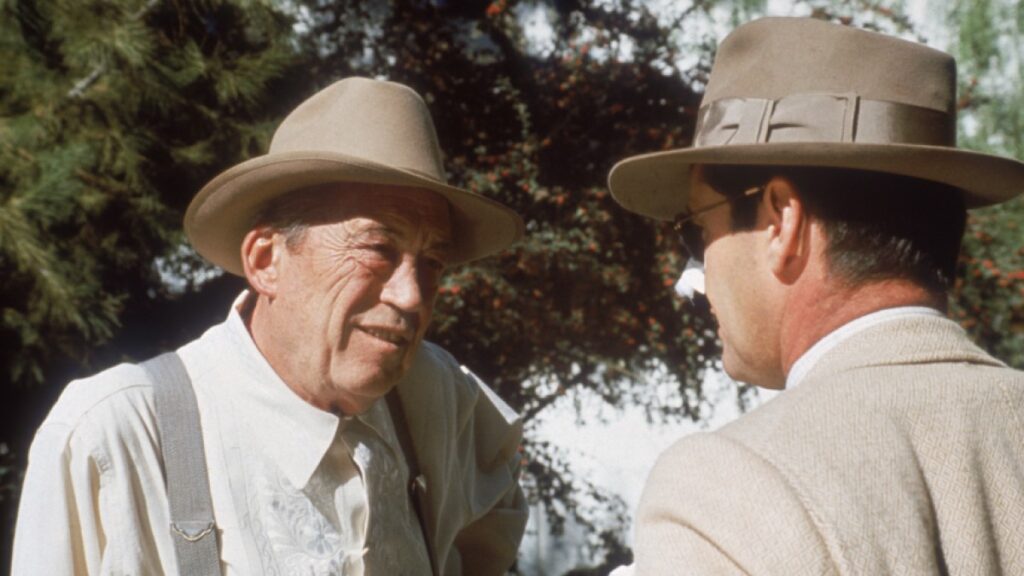
Image via Paramount Pictures
That ending was the tip of a larger iceberg signalling a shift in taste and tolerance. Boundaries were being tested, stereotypes jettisoned, and real life was finally being reflected. Chinatown landed slap back in the middle of this era and ended up helping define it. On every level it is considered a classic and now that 4K Ultra HD has refreshed the rose-tinted visuals, this 70s film noir feels more essential than ever.
Chinatown is now available to own on 4K Ultra HD.



